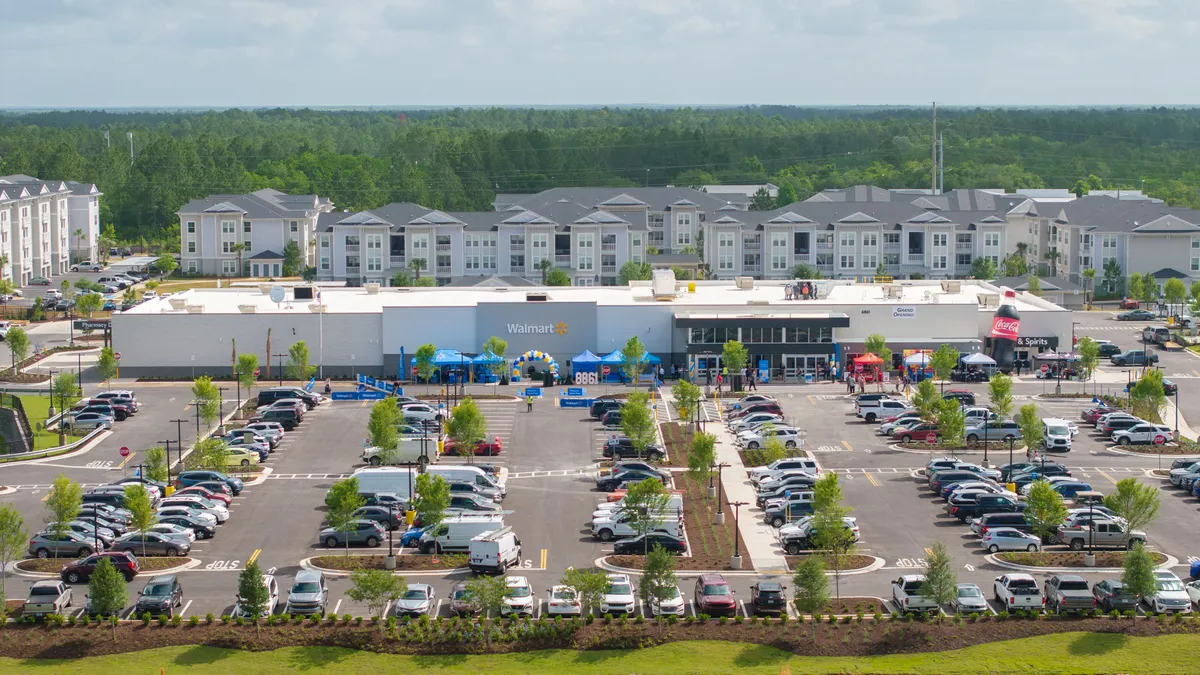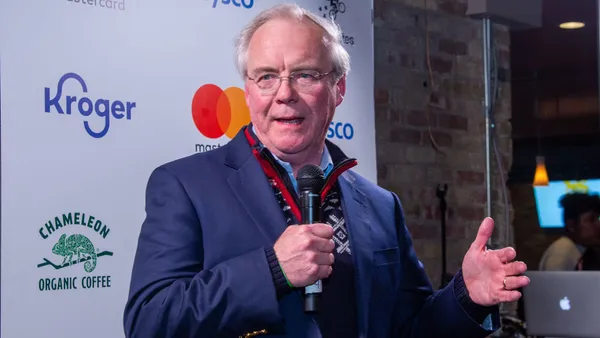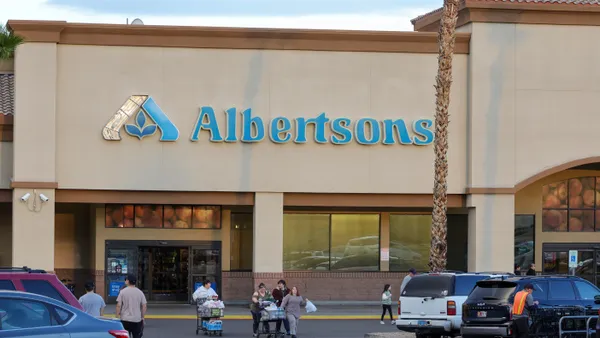Dive Brief:
-
More than half of employees at the nation’s largest retail and foodservice companies, which include grocery companies, do not get paid when they cannot show up for work due to illness or because they have to take care of someone else, according to newly released findings from the Shift Project at the University of California, Berkeley.
-
The decision by Congress to exempt employers with more than 500 employees from the expansion of paid sick leave included in the Federal Families First Coronavirus Response Act has left as many as 85% of essential employees in the grocery, pharmacy and general merchandise industries without mandatory access to COVID-19 related sick leave benefits, the University of California researchers determined. Fourteen states have passed legislation that requires employers to give paid sick leave to workers, along with 18 cities and counties, according to the researchers. California Gov. Gavin Newsom issued an executive order on April 16 that requires employers in the food-service sector, including grocery stores, to provide paid sick leave even if they have more than 500 workers.
-
Although 45% of the approximately 30,000 hourly workers included in the Shift Project survey said they had access to some level of paid sick leave, only 8% indicated that they are entitled to take off at least 14 days — the period recommended for people who test positive for COVID-19 — and still receive a paycheck, the Shift Project found. Unionized workers are more likely to have paid sick leave than non-unionized employees, and the percentage of men entitled to pay if they cannot work due to illness is higher than it is for women, the researchers reported.
Dive Insight:
The Shift Project findings are being released as supermarket operators are trying to demonstrate their commitment to protecting workers and the public during the pandemic.
Grocers have implemented temporary bumps in pay for workers and voluntarily taken steps such as limiting the store occupancy and installing barriers to keep workers and shoppers separated at checkout counters and other high-touch areas. But while some grocery companies have also announced that they will provide up to 14 days of pay to workers waylaid by the virus, taking advantage of that benefit generally requires workers to provide evidence that they have COVID-19, a significant obstacle given that testing for the disease can be hard to access.
As the University of California researchers suggest, the benefits of providing employees with the ability to stay home when they are feeling sick and still get paid extend beyond the workers themselves. The limitations attached to the federal extension of sick leave benefits also impacts public health given that workers and shoppers are in stores together.
"The widespread lack of paid sick leave for service-sector workers has serious consequences for workers’ own health, for the wellbeing of those they care for, as well as for public health," Daniel Schneider, assistant professor of sociology at the university and co-director of the Shift Project, said in a press release. "During a global pandemic, these consequences become all the more urgent.”
Grocery workers and employers are working to convince government officials to categorize supermarket employees as emergency workers, a designation that would give them priority access to testing for the virus and personal protective equipment. Kroger and the United Food and Commercial Workers International Union issued a joint statement on Tuesday asking state and federal officials to consider grocery workers as first responders.
Massachusetts announced on April 10 that it would allow grocery workers access to testing sites intended for first responders, but supermarket employees in other parts of the country generally are not afforded such preferential treatment.
Walmart, Target and Kroger are among grocers that are voluntarily giving employees access to paid time off if they contract the virus or are placed under quarantine. Lidl, meanwhile, announced in March that it would offer a package of COVID-19-specific healthcare benefits to new and current workers. The benefits cover testing for testing and medical care related to infections for people without health insurance.














